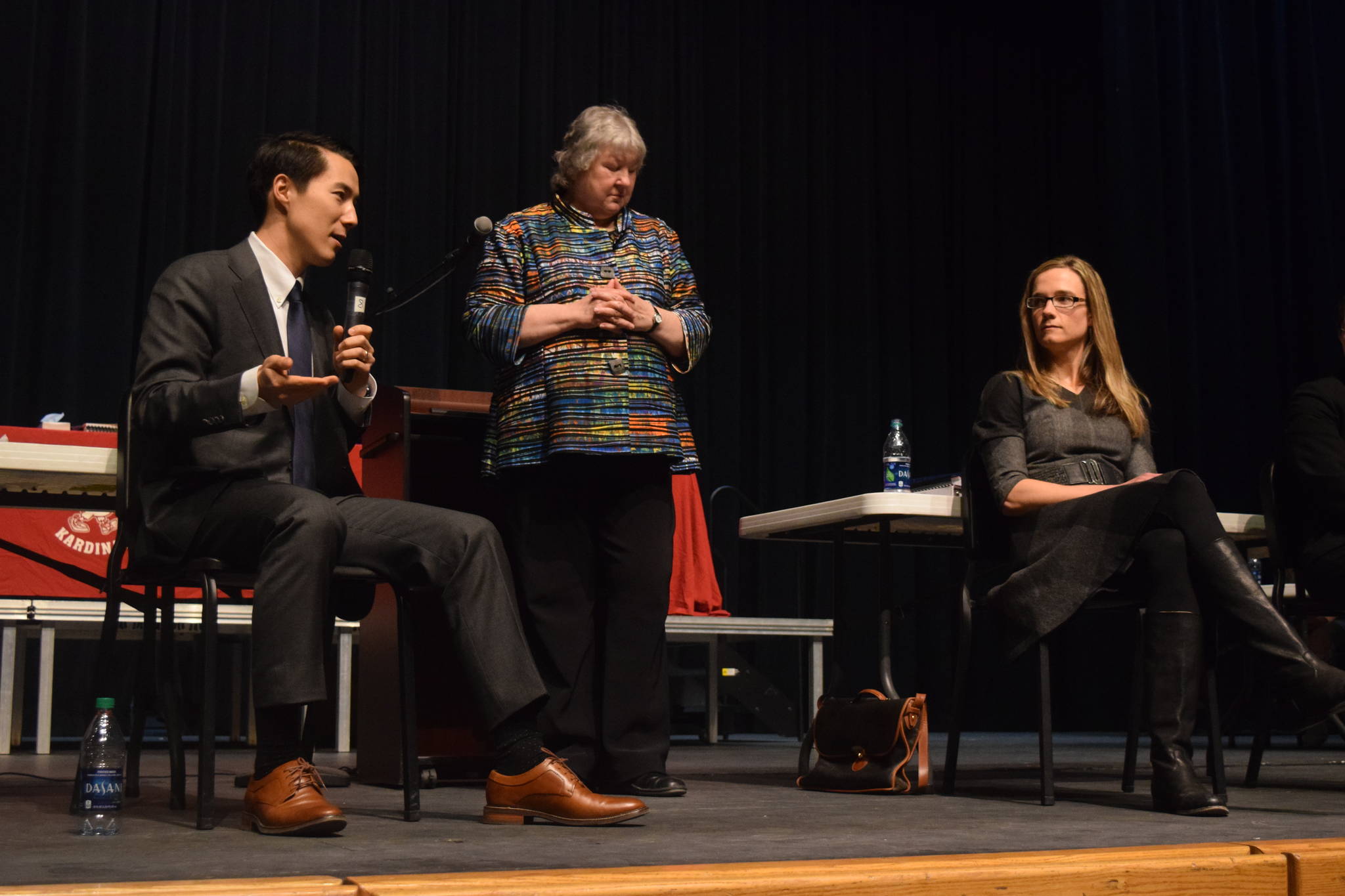Assistant Attorney General Laura Fox and Alaska Democratic Party attorney Jon Choate were tasked with answering a simple question in front of the Alaska Supreme Court on Thursday afternoon in Kenai: “What does it matter?”
When it comes to primary election ballots, though, the question becomes more complex, and the answer could impact this year’s election cycle.
At Kenai Central High School, Chief Justice Craig Stowers, Justices Daniel Winfree, Peter Maassen, Joel Bolger and Susan Carney and an auditorium full of high school students participating in Supreme Court Live heard the almost an hour’s worth of oral arguments in a case that will determine if the Alaska Democratic Party can include independents, or non-affiliated, candidates on its primary election ballot.
The Alaska Democratic Party wants to allow people who are unaffiliated with a political party to run on the Democratic ballot, but Alaska state law requires candidates who want to run in a primary election for a political party’s nomination be registered to vote as a member of that political party, or as Chief Justice Stowers put it on Thursday, “sign on the dotted line.”
The state says it matters because a candidate who refuses to register with the party is prioritzing their desire to distance themselves from the party, rather than associating with it.
The Alaska Democratic Party argues that by choosing to run on the ballot, even if they aren’t a declared member of the party, associates the candidate with the party on the ballot.
“It’s reasonable for the state to draw a distinction between people who are willing to identify with the party publicly and people who aren’t,” Fox, representing the state, said. “Certainly, someone can register with the party and say that they don’t really believe in the party’s principles but it’s reasonable to distinguish.”
Choate argued that the state is filtering who may participate as a candidate based upon what they believe, based on their views.
“Underpinning the state’s argument is that the label by the candidate’s name, or signing the dotted line, is a proxy for idealogy,” Choate said. “It is a proxy for what the candidate believes.”
The state also argued that there may be confusion for the voters if a nonpartisan nominee is on a partisan ballot, particularly if the ballot signifies that the candidate is independent or non-affiliated.
“There are a range of different voters who have a range of different information, but it’s confusing and deceptive to call someone non-partisan if they are a partisan nominee,” Fox said.
The Alaska Supreme Court will take the arguments under advisement, but is expected to render a quick decision. The deadline for a candidate to file for this year’s primary is June 1. If the Supreme Court decides to uphold the Juneau Superior Court verdict, in which Judge Philip Pallenburg concluded that the state’s actions were a violation of the First Amendment, it would have to do it before June 1 for it to be effective in this election cycle.
Reach Kat Sorensen at ksorensen@peninsulaclarion.com

